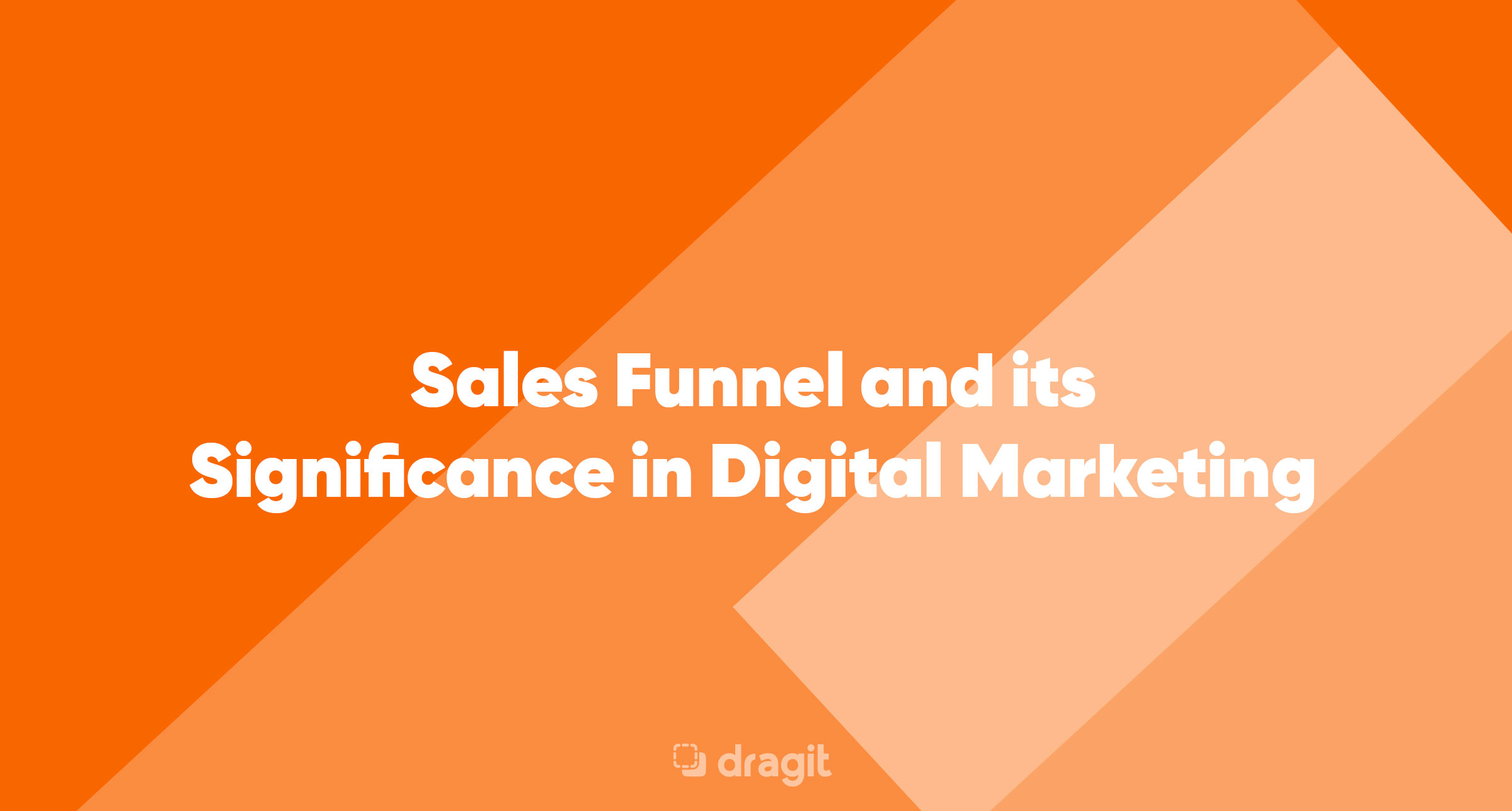In the vast realm of digital marketing, where businesses compete for the attention and loyalty of online users, understanding the strategies that can optimize your efforts is paramount. Among these, the Sales Funnel stands out as a foundational concept that drives conversions and customer engagement. This article will delve into the Sales Funnel's significance in the world of digital marketing, shedding light on its role and impact.
Deciphering the Sales Funnel
At its core, the Sales Funnel is a visual representation of a customer's journey from the initial point of contact with a brand to the final act of making a purchase. The funnel metaphor is aptly used because it starts broad at the top, representing a large pool of potential customers, and narrows down, signifying the filtering process leading to conversions. Here's a breakdown of its stages:
- Awareness: This is where potential customers first learn about a product or service. It's the broadest stage, capturing the attention of a wide audience.
- Interest: At this stage, potential customers express an interest in the product or service, often seeking more information or engaging with the brand in some way.
- Decision: This is the evaluation phase. Potential customers are now considering making a purchase and might compare options, read reviews, or engage with sales representatives.
- Action: The culmination of the funnel, this is where the customer completes the desired action, be it making a purchase, signing up for a newsletter, or any other conversion metric.
Now, how does this Sales Funnel integrate into the landscape of digital marketing?
The Sales Funnel in the Digital Marketing Ecosystem
-
Generating Awareness:
- In the realm of digital marketing, the awareness stage often involves strategies like content marketing, pay-per-click advertising, social media campaigns, and more. The goal is to cast a wide net, capturing the attention of online users.
- SEO (Search Engine Optimization) plays a pivotal role here, ensuring that content is discoverable when potential customers search for relevant terms.
-
Cultivating Interest:
- Email marketing campaigns, retargeting ads, and engaging social media content can nurture this interest. Interactive content, webinars, or e-newsletters can provide value, keeping potential customers engaged and moving them further down the Sales Funnel.
- Digital marketing tools allow for personalized content delivery, ensuring that potential customers receive information tailored to their preferences and behaviors.
-
Facilitating Decisions:
- Digital marketing shines in its ability to provide detailed product information, comparisons, and reviews. With tools like chatbots, AI-driven recommendations, and interactive product demos, businesses can address queries and concerns in real-time, influencing the decision-making process.
- Special offers, discounts, or exclusive content can be strategically delivered to nudge potential customers towards making a decision.
-
Driving Action:
- The final stage in the Sales Funnel is all about conversion optimization in the digital marketing context. Clear CTAs (Call to Actions), streamlined checkout processes, and trust-building elements like testimonials or trust badges can enhance conversion rates.
- Post-action strategies, like thank-you emails or feedback surveys, can further enhance the customer experience, laying the groundwork for repeat business.
Why the Sales Funnel is Indispensable in Digital Marketing
- Structured Approach: The Sales Funnel provides a clear roadmap for digital marketing efforts, ensuring that strategies are aligned with customer stages, leading to more effective campaigns.
- Optimized Resource Allocation: By understanding where potential customers are in the Sales Funnel, businesses can allocate resources more efficiently, targeting efforts where they're most likely to yield results.
- Enhanced Customer Understanding: The Sales Funnel framework allows businesses to gain insights into customer behaviors, preferences, and pain points, leading to more tailored and impactful marketing strategies.
- Measurable Results: Each stage of the Sales Funnel corresponds to specific metrics in digital marketing, from website traffic and bounce rates to conversion percentages. This allows for continuous monitoring and optimization.
Conclusion
The Sales Funnel is not just a theoretical concept; it's a practical tool that shapes and guides digital marketing efforts. In the fast-paced, ever-evolving world of digital marketing, the Sales Funnel provides clarity, direction, and a structured approach to achieving business goals. By understanding its stages and integrating them into digital marketing strategies, businesses can navigate the complex digital landscape with confidence, driving conversions, and fostering lasting customer relationships.
